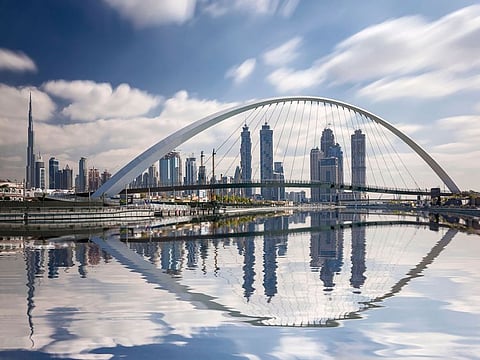UAE stimulus will help protect economy
Dh100 billion package can ward off the ill-effects of corona outbreak and oil crash

The UAE has always acted quickly and decisively to protect its economy and the financial system from global and regional risks. Last week, the Government of Dubai announced a Dh1.5 billion stimulus package, and that was followed by a Dh100 billion package from the Central Bank of UAE to boost liquidity in the banking system. These actions are timely and will serve to support local businesses impacted by the coronavirus outbreak.
The Targeted Economic Support Scheme allows banks to access Dh50 billion of collateralised loans free of interest from the central bank, as well as freeing up Dh50 billion from the banks’ own capital buffers to increase liquidity.
This will allow banks to offer temporary relief (of up to six months) for businesses and individuals who struggle to pay the principal and/or interest on loans.
Using the central bank support, banks can continue to lend and offer relief to businesses. That will help ameliorate the effects of the pandemic
The central bank has also tweaked its norms on lending by encouraging banks to offer loans to small and medium enterprises (SMEs) with lower capital buffers, higher loan limits for mortgages and increased exposure limits to real estate sector.
The maximum loan-to-value (LTV) of mortgages for first-time buyers has been increased, and banks now have a higher ceiling on their maximum exposure to real estate, albeit with higher capital requirements.
The actions are not new to the central bank and the UAE government. In 2008, when the collapse of Lehman Brothers triggered a global recession, its effects were felt in the real estate and banking sectors in the UAE.
The UAE moved quickly to head off a potential investor panic with a range of measures including liquidity support to banks, deposit guarantee and recapitalisation of banks. A total of Dh120 billion was made available to local banks for liquidity, including Dh70 billion from the finance ministry.
It helped the UAE banks recover their strength, and over time they became flush with depositors’ cash again as the country’s political stability and sustainable economic growth continued to burnish its safe-haven appeal to regional and global investors.
So the Dh100 billion announcement on Saturday did not come as a surprise. The central bank has again flexed its financial muscles to support the banking system and the economy before the coronavirus outbreak and low oil prices impacted the banks. It also helped bolster the UAE economy by making funds available to the private sector.
Using the central bank support, banks can continue to lend and offer relief to businesses. That will help ameliorate the effects of the pandemic.



